Physics
Sign up for our newsletter
We summarize the week's scientific breakthroughs every Thursday.
-
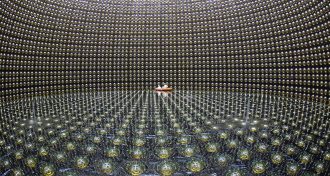 Particle Physics
Particle PhysicsDiscovery of neutrino mass earns 2015 physics Nobel
The discovery that subatomic particles called neutrinos have mass has won Takaaki Kajita of the University of Tokyo and Arthur McDonald of Queen’s University in Kingston, Canada, the 2015 Nobel Prize in physics.
By Andrew Grant -
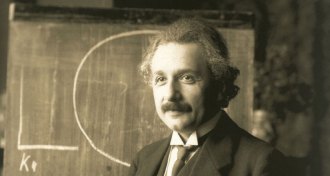 Science & Society
Science & SocietyCentennial books illuminate Einstein’s greatest triumph
Scholars mark general relativity 100ths anniversary with books on history, biography, science.
-
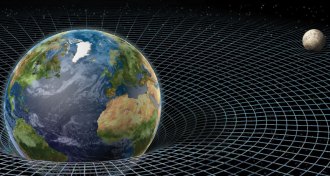 Astronomy
AstronomyEinstein’s genius changed science’s perception of gravity
Einstein struggled for years to solve the puzzle of general relativity. The pieces all fell into place in November 1915.
-
 Quantum Physics
Quantum PhysicsQuantum choice can be counterproductive
In a puzzling paradox, delivering quantum messages becomes more difficult if the intended recipient offers the sender multiple options for the time and place of delivery.
By Andrew Grant -
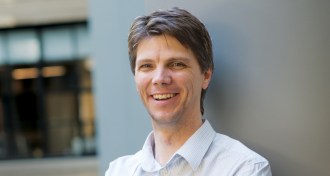 Particle Physics
Particle PhysicsWilliam Detmold: Looking deep into atoms’ hearts
MIT theoretical physicist William Detmold probes the fundamental bits of matter that combine to form the nuclei of atoms.
By Andrew Grant -
 Quantum Physics
Quantum PhysicsShinsei Ryu: Error-free quantum calculations
Physicist Shinsei Ryu navigates the confusing border between the quantum and everyday realms.
-
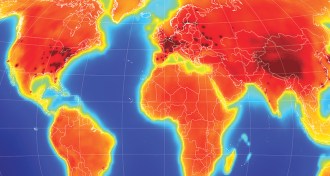 Particle Physics
Particle PhysicsMap captures Earth’s antineutrino glow
Tiny subatomic particles called antineutrinos stream away from Earth at different concentrations across the globe, a new map illustrates.
By Meghan Rosen -
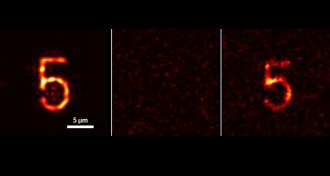 Physics
PhysicsRaw chicken, ingenuity make a time-reversal mirror
A new phase-conjugation mirror sends light waves back where they came from, allowing physicists to reconstruct images even if the original light was severely scrambled.
By Andrew Grant -
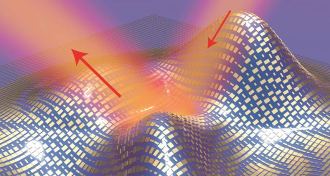 Physics
PhysicsInvisibility cloaks slim down
An ultrathin invisibility cloak called a skin cloak offers more stealth in a thinner package.
By Andrew Grant -
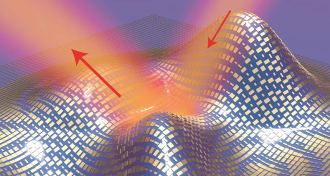 Materials Science
Materials ScienceInvisibility cloaks slim down
A new invisibility cloak offers more stealth in a thinner package.
By Andrew Grant -
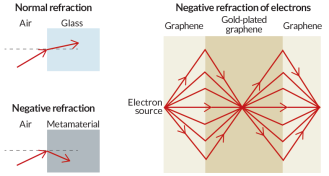 Materials Science
Materials ScienceElectron waves refract negatively
Waves of electrons have been bent backward in a sheet of graphene, allowing physicists to focus electrons the way a lens focuses light.
By Andrew Grant -
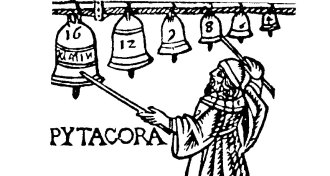 Physics
PhysicsNobel laureate finds beauty in science and science in beauty
In ‘A Beautiful Question,’ Frank Wilczek explores links between math and art